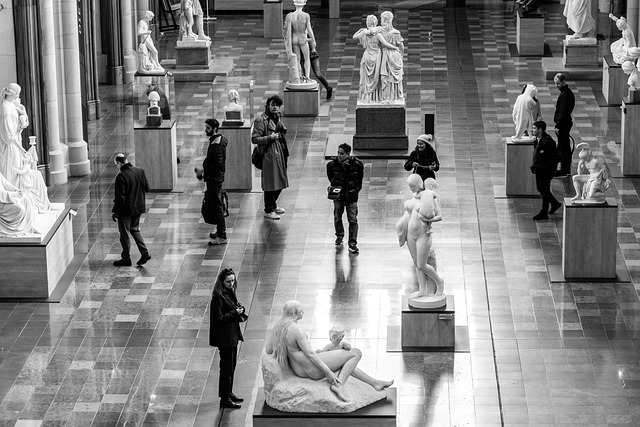For every viewer who has ever paused a movie to savor a soaring soundtrack or cheered in a packed auditorium during a live orchestral performance, the world of film music and entertainment festivals offers a rich tapestry of sights, sounds, and stories. From historic cinema halls to contemporary outdoor stages, festivals bridge the gap between the cinematic experience and the live music scene, allowing fans to immerse themselves in the creative process behind the music that shapes their favorite films.
Why Festivals Matter to the Film Music Community
The convergence of film composers, musicians, and audiences at festivals creates a dynamic environment where ideas are exchanged, collaborations are forged, and the evolution of film music can be witnessed in real time. For the viewer, this means more than just watching a soundtrack; it is an opportunity to hear the composer’s intent, understand the instrumentation, and see how live arrangements adapt to different settings. This communal experience deepens appreciation and inspires new generations of musicians and filmmakers alike.
Key Elements of a Film Music Festival
A well‑structured festival typically features a mix of live performances, panel discussions, workshops, and retrospectives. The main event often centers on a prominent film score, followed by side sessions that explore genre‑specific themes such as horror, science fiction, or epic adventure. Interactive components—such as score‑building demonstrations and Q&A with composers—provide a hands‑on experience for the viewer, encouraging a deeper engagement with the material.
“The magic of a film score is not only in its composition but also in how it moves people in real time,” said a veteran composer at last year’s global festival.
Top Global Festivals for Film Music Enthusiasts
While countless events celebrate music and cinema, a handful stand out for their focus on film scores and the experiential opportunities they provide to the viewer. Each of these festivals has become a cultural touchstone, drawing crowds that range from industry insiders to passionate hobbyists.
1. Berlin International Film Music Festival
Located in the heart of Europe, this festival blends the historic allure of Berlin’s cinema heritage with cutting‑edge performances. It offers a flagship concert that plays live versions of iconic film themes, followed by intimate composer talks. The audience, often dubbed “film music connoisseurs,” can walk through themed installations that showcase the evolution of orchestration over the decades.
- Live orchestra rendition of classic scores.
- Workshops on modern scoring techniques.
- Special screening of unseen score reels.
2. Los Angeles Soundscape Gala
Set against the glitz of Hollywood, this gala celebrates the nexus between cinema and the music industry. It features collaborations between film composers and contemporary pop artists, offering a fresh take that appeals to the modern viewer. The gala’s immersive sound installation allows attendees to experience a score in 3D audio, providing a sensory depth that is rarely captured on vinyl or digital files.
3. Edinburgh Film Score & Live Music Festival
Edinburgh’s rich cultural scene hosts a festival that invites viewers to witness the process of scoring films in real time. Live performances are paired with behind‑the‑scenes workshops where students learn to transcribe motifs directly from a composer’s live demonstrations. The festival also showcases short films scored on the spot, turning the viewer’s experience into an interactive listening journey.
How Festivals Shape the Future of Film Music
Festivals serve as incubators for new ideas. By bringing together creators from the music industry, film studios, and independent artists, they foster experimentation that pushes the boundaries of traditional scoring. For the viewer, this translates into fresher, more diverse soundtracks in upcoming releases, as composers incorporate feedback and novel techniques discovered during these events.
Emerging Trends Highlighted by Festival Programming
Over the past decade, several trends have emerged within the festival circuit, each reflecting the evolving relationship between cinema, music, and audience expectations:
- Hybrid Live‑Digital Performances: Merging live orchestras with real‑time visual projections to create a multisensory experience.
- Interactive Score Creation: Workshops where attendees contribute to a live score, using tablets and motion‑sensing devices.
- Focus on Diversity: Programming that highlights underrepresented composers and showcases music from different cultural traditions.
What Viewers Should Bring to a Film Music Festival
Planning for a festival is simple yet thoughtful. A clear guide can help the viewer make the most of the experience, ensuring they are prepared for the variety of performances, educational sessions, and networking opportunities on offer.
- Comfortable Attire: Many festivals feature outdoor stages; breathable clothing and shoes make long days more enjoyable.
- Notebook or Digital Device: Jotting down ideas or listening notes can be invaluable, especially after a composer’s workshop.
- Tickets for Multiple Events: Festivals often run concurrent sessions; securing a pass that covers all desired shows ensures a seamless schedule.
- A Sense of Curiosity: The most rewarding aspect of festival attendance is the willingness to explore beyond familiar genres.
Conclusion: Embracing the Festival Experience as a Viewer
Film music festivals are more than concerts; they are living laboratories where the creative sparks that light up movies come to life. For the viewer, the experience is an invitation to become an active participant in the dialogue between composer and audience. By attending, listening, and engaging, you not only deepen your appreciation for the art form but also contribute to its ongoing evolution. Each festival, each performance, each workshop is an opportunity to witness history in the making and to understand why film music remains a vital force in the entertainment industry.



